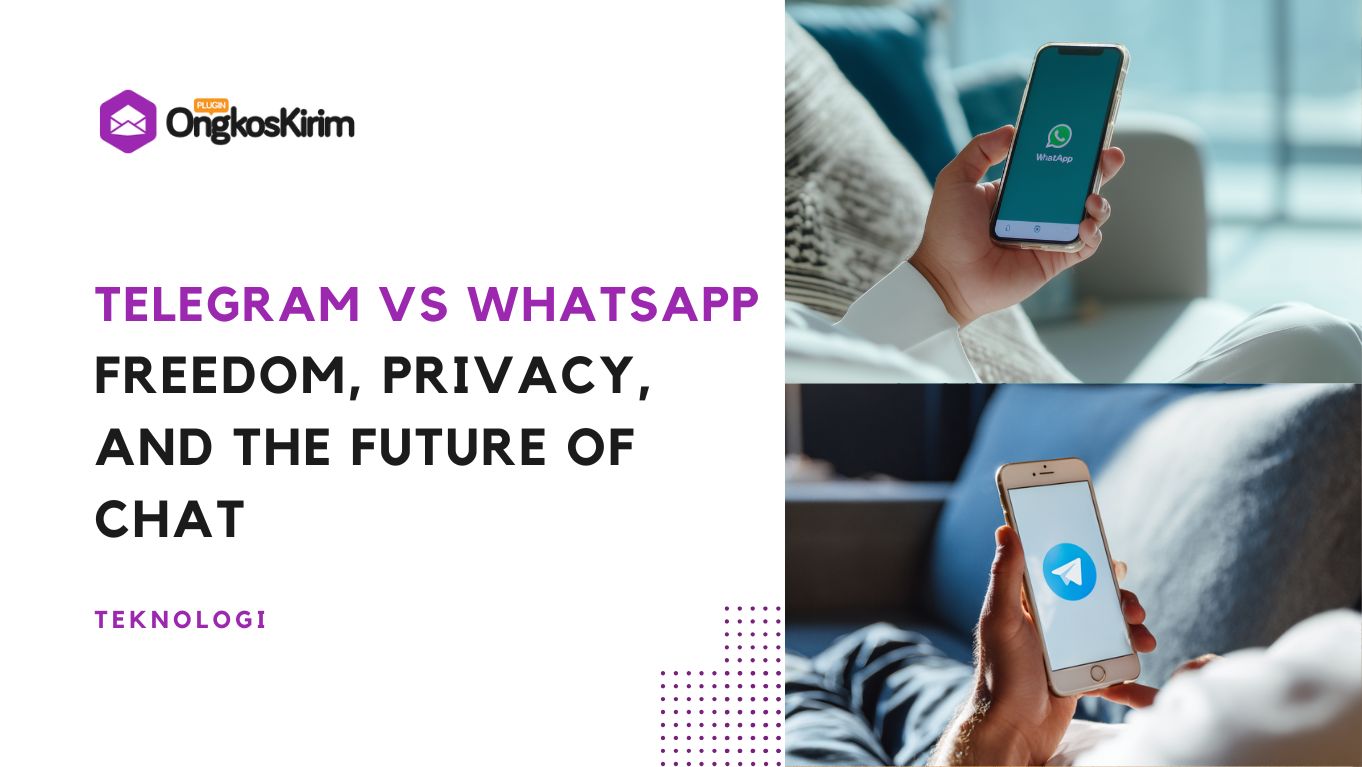In 2025, messaging apps are no longer just about sending texts or photos. They have become an essential part of our social, professional, and even financial lives. Among hundreds of apps competing for attention, two giants continue to shape the way we communicate: Telegram and WhatsApp. Both are powerful, reliable, and incredibly popular, yet they represent two very different ideas of what digital freedom means.
So, which one truly gives you more freedom?
Privacy: The Core of Modern Messaging
Privacy is the first thing most users think about when choosing a chat app today. WhatsApp uses end-to-end encryption by default, which means only you and the person you’re messaging can read what’s sent. However, the app’s connection to Meta (Facebook’s parent company) has raised concerns about how user data and metadata are handled.
Telegram takes a slightly different approach. Regular chats are stored securely on its cloud servers, while Secret Chats use end-to-end encryption and can self-destruct automatically after a set time. This gives users more flexibility in managing how private they want their conversations to be.
For users in Asia who prefer faster access and region-optimized servers, the Telegram Chinese version provides better stability and enhanced privacy options. It’s a good choice for anyone who values both performance and control over personal data.
Accessibility and Multi-Device Freedom
The days of being tied to a single device are gone. Telegram has always offered full cross-platform access. You can log in on your phone, tablet, or computer, and everything syncs instantly. There’s no need to scan QR codes or keep your phone connected to the internet.
WhatsApp, on the other hand, has been catching up quickly. Its new multi-device feature finally allows users to log in from several devices independently. This is especially useful for professionals who work on laptops or desktops during the day. To make it even easier, you can use WhatsApp web login to connect instantly from your browser without keeping your phone online. It’s fast, convenient, and secure.
Both apps now make it easier to move between devices, but Telegram’s cloud-based system still feels more seamless for heavy users.
File Sharing and Customization
One area where Telegram has consistently led the pack is file sharing. You can send files up to 2GB in size, whether they’re videos, documents, or music files. It even acts as your personal cloud storage since you can access everything you’ve sent from any device.
WhatsApp has improved its media-sharing limits, but it’s still designed around lighter, everyday communication. Telegram, meanwhile, gives creators and professionals more flexibility through its bots, channels, and open developer tools. It feels more like a platform than a simple messenger.
If you enjoy tweaking your experience, Telegram also allows custom themes, chat backgrounds, and automated tools. WhatsApp keeps things simpler, which works well for users who want a consistent and straightforward interface.
Baca Juga
Communities and Ecosystem Power
Beyond one-on-one chats, both apps have evolved into powerful community platforms. Telegram’s channels can reach millions of subscribers, while supergroups support massive communities. Creators, media outlets, and even educational institutions use Telegram as a broadcasting hub.
WhatsApp has introduced its Communities feature, which allows people to manage related groups under one umbrella. It’s ideal for families, workplaces, or schools that need organization without noise.
The difference lies in purpose. Telegram feels like an open ecosystem that encourages exploration, while WhatsApp remains a more private, familiar space centered around close relationships.
Security, Control, and Freedom
Security is not only about encryption; it’s also about how much control users have over their digital environment. Telegram’s open API gives developers room to build bots, tools, and specialized versions of the app that suit local needs. This freedom fuels innovation and accessibility, especially in regions that require alternative app versions like the Telegram Chinese version.
WhatsApp is stricter. It limits external modification to ensure a uniform and secure experience for everyone. This approach minimizes risks but can also feel restrictive to users who like to customize their tools.
Both philosophies have merit. Telegram’s strength is in creative freedom, while WhatsApp’s lies in consistency and simplicity.
The Final Verdict: What Kind of Freedom Do You Want?
There is no single winner between Telegram and WhatsApp. Instead, the better choice depends on the type of freedom you value most.
If you want flexibility, customization, and advanced features, Telegram is your best ally. Its balance between innovation and privacy gives users complete control over how they connect. If you prefer stability, familiarity, and easy integration with your daily routines, WhatsApp remains unbeatable. With improvements like WhatsApp web login, it’s now far more convenient and accessible than ever before.
In the end, both apps represent two sides of digital freedom. One gives you the power to shape your experience; the other gives you peace of mind through simplicity. Whichever you choose, the key is to find the tool that keeps you connected on your terms.





